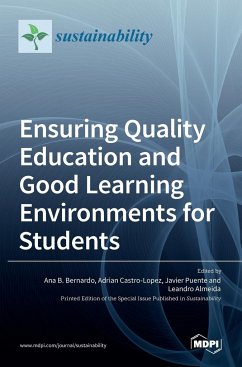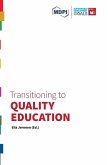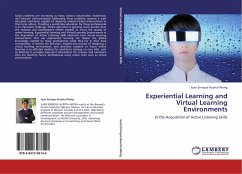Today, new technologies bring with them an everchanging panorama, forcing us to constantly update our knowledge. For this reason, quality education is necessary in all areas of knowledge and at all educational levels. The quality of our educational systems and the questions raised by reviewing whether our educational institutions offer quality education or not are some of the main reasons why quality education is a topic that, in recent years, has captured the interest of governments, researchers and lecturers, among others. This issue brings together different socioeducational actors with their concerns for and commitments to higher education, in order to achieve the aim of providing people with the competencies necessary to adapt to a changing and competitive world, in which the individual needs to engage in lifelong learning and where education must align with sustainable development goals, such as democracy, justice and equality. All of this provides us with a scenario for reflecting on and researching fundamental questions, such as how to prevent school absenteeism, how to deal with students leaving school early, how to prevent or alleviate the phenomenon of dropping out in higher education, etc. In other words, can we assume that student failure is partly due to the failure of our educational systems? Are we educating self-regulated, critical, learning-motivated and competent students? These and other questions lead us to search for measures with which we can improve the quality of our educational systems by proposing strategies and developing tools to enhance the lecturing-learning processes in our classrooms.
Hinweis: Dieser Artikel kann nur an eine deutsche Lieferadresse ausgeliefert werden.
Hinweis: Dieser Artikel kann nur an eine deutsche Lieferadresse ausgeliefert werden.








